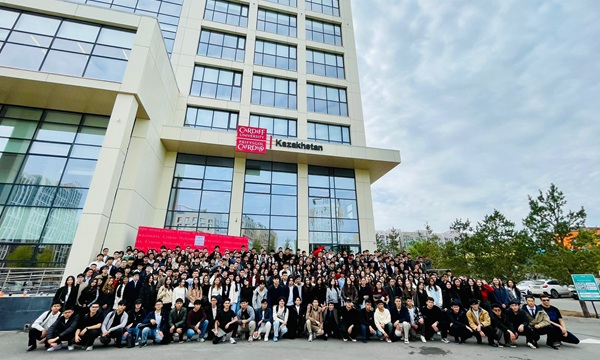The “stickiness” of inflation well above target and the expectation amongst consumers and businesses that it will continue at the same level are problems that will take “some effort” to resolve, according to a member of the Bank of England’s Monetary Policy Committee.
Catherine L Mann spoke to Business News Wales during a visit to Cardiff, where she addressed the Board of Cardiff Business Club.
She said she agreed with comments made earlier this week by Bank of England Governor Andrew Bailey that the “path is downward” for the bank rate, which currently stands at 4.25%. The MPC will next meet to consider interest rates on August 7.
“I think the question is – how far and how fast?” said Catherine. “And I think that's where differences in views on the committee come from – a difference in assessment of where the demand conditions really are and how that's playing out in the labour market with respect to employment prospects and shedding of labour.
“That's on the one hand definitely a concern that I have as well. On the other side, there is the persistence of inflation, and the stickiness of inflation well above target, and the questions that I have in my decision making (are): what is it that's going to be an important part of the process of bringing inflation back down to target, and how fast will that happen?
“My view is that it's going to take some effort to get inflation down.”
The UK consumer prices index (CPI) rose to 3.6% last month, according to the Office for National Statistics – the highest recorded since January 2024. The Bank of England’s target rate is 2%.
Consumers and businesses now have embedded inflation expectations, said Catherine, as wage and pricing inflations continue to run above target.
Economic growth – a key priority for both UK and Welsh Governments – needs to be supply-side driven to avoid inflation rising further, she warned.
“When I think about growth as a central banker, what I want to see is supply side growth, and the demand will come along with it,” said Catherine.
“Without supply side growth, demand is a sugar high, and it does not end well.”
Achieving supply-side growth was “challenging”, she acknowledged, adding that creating the right environment for productivity growth with a focus on innovation and business investment is key.
The labour market element of the supply-side of the economy needs to be “robust” to enable economic growth, and this is currently one of the most significant concerns, said Catherine.
A wide-ranging discussion with the Cardiff Business Club Board included debates on the labour force, skills and training and issues around productivity.
Earlier this week Catherine visited Newport where she took part in a Bank of England citizens’ panel event. It was part of the Bank’s Citizens’ Forum Programme, which is designed to gather information from local people to complement existing data and analysis, and help inform the Bank’s policy decisions.
Discussions at the citizens’ panel focused on the cost-of-living and the housing market.












